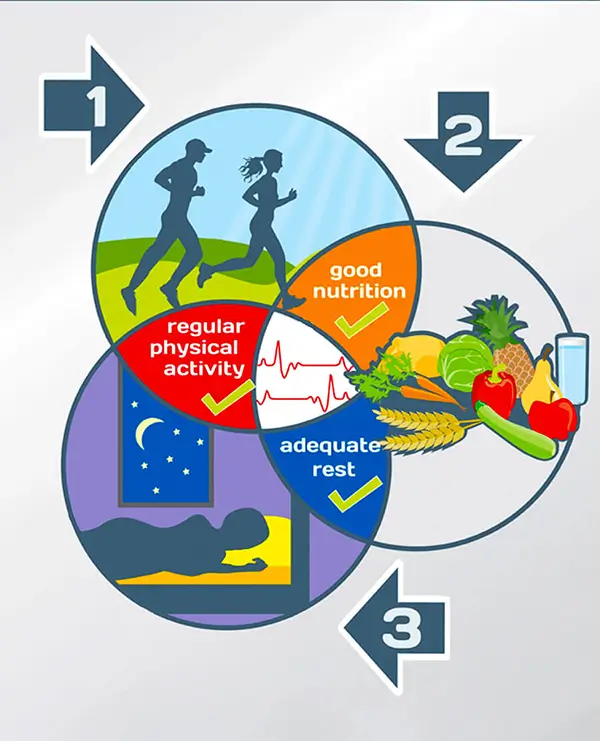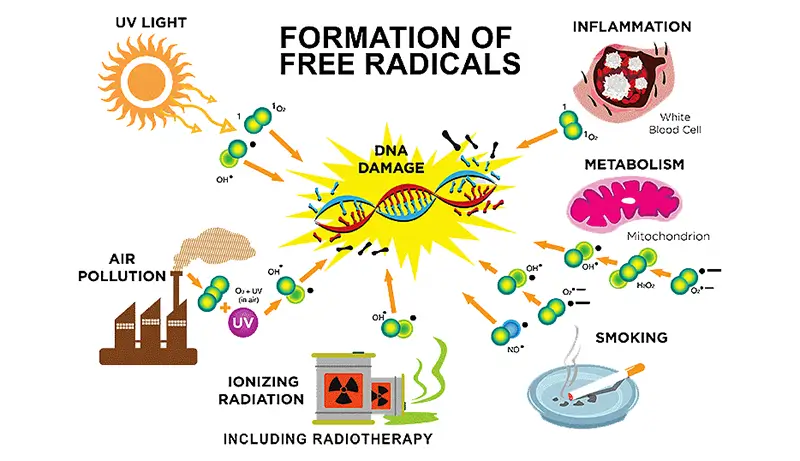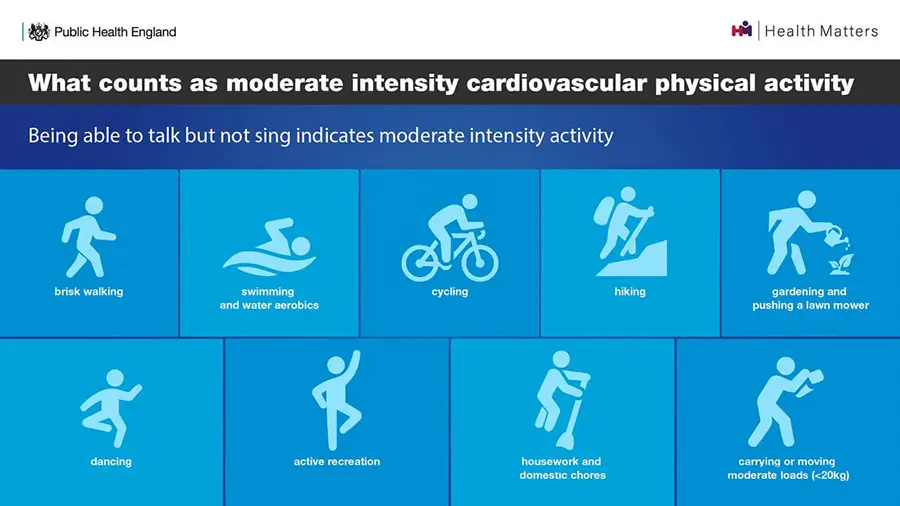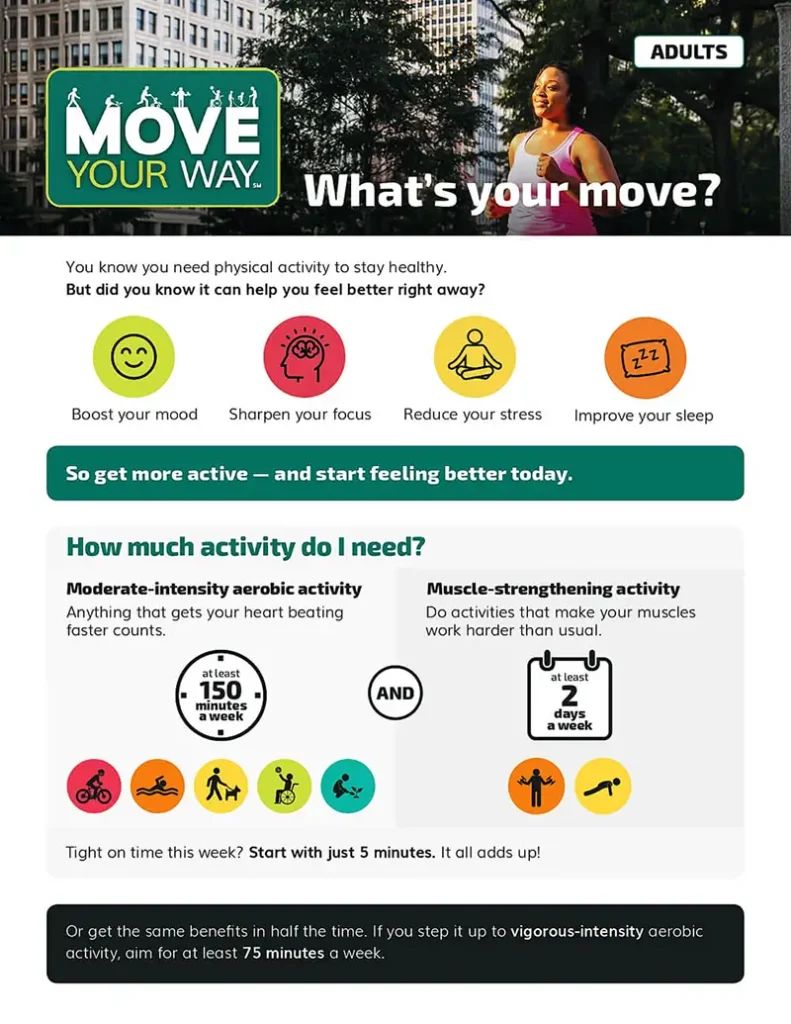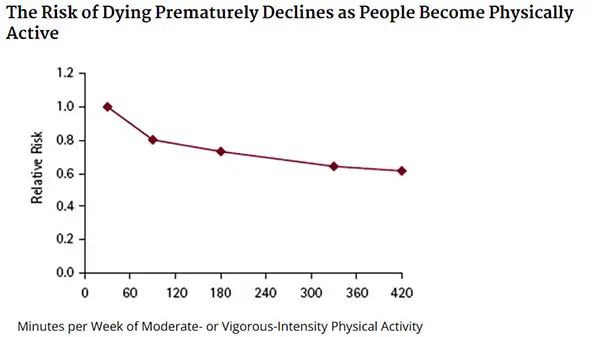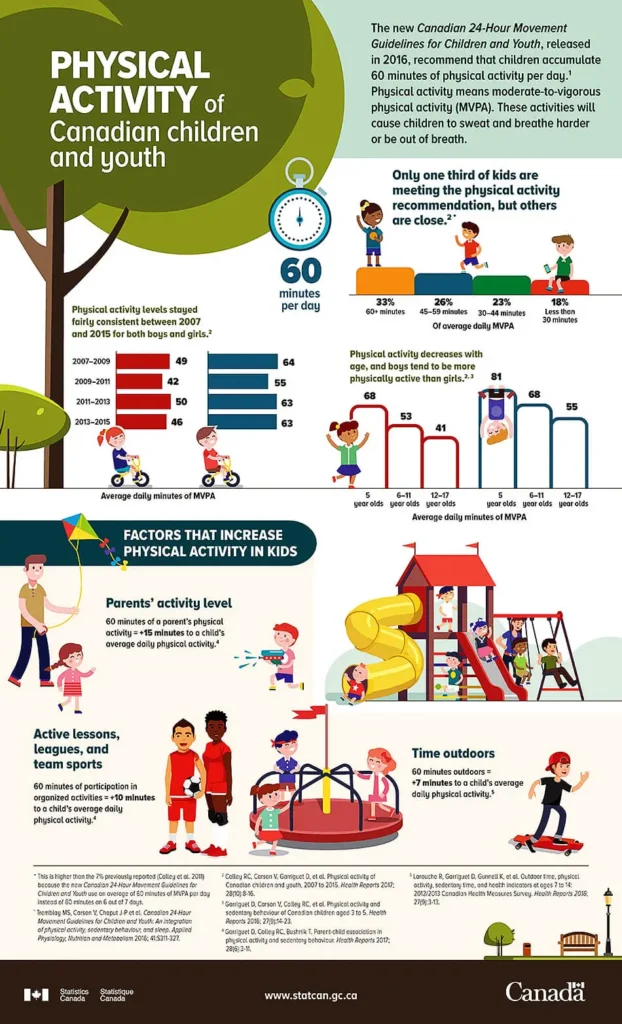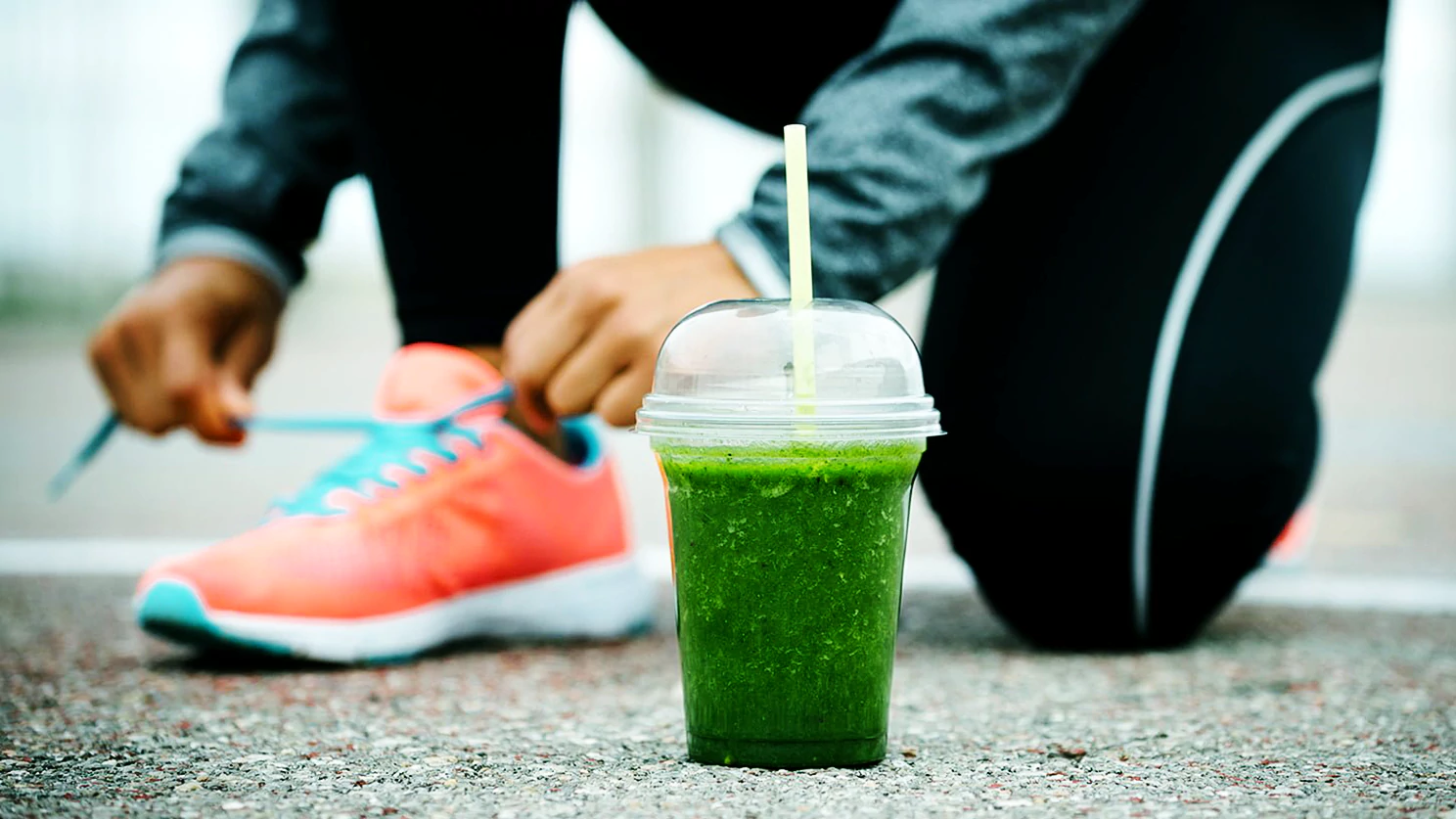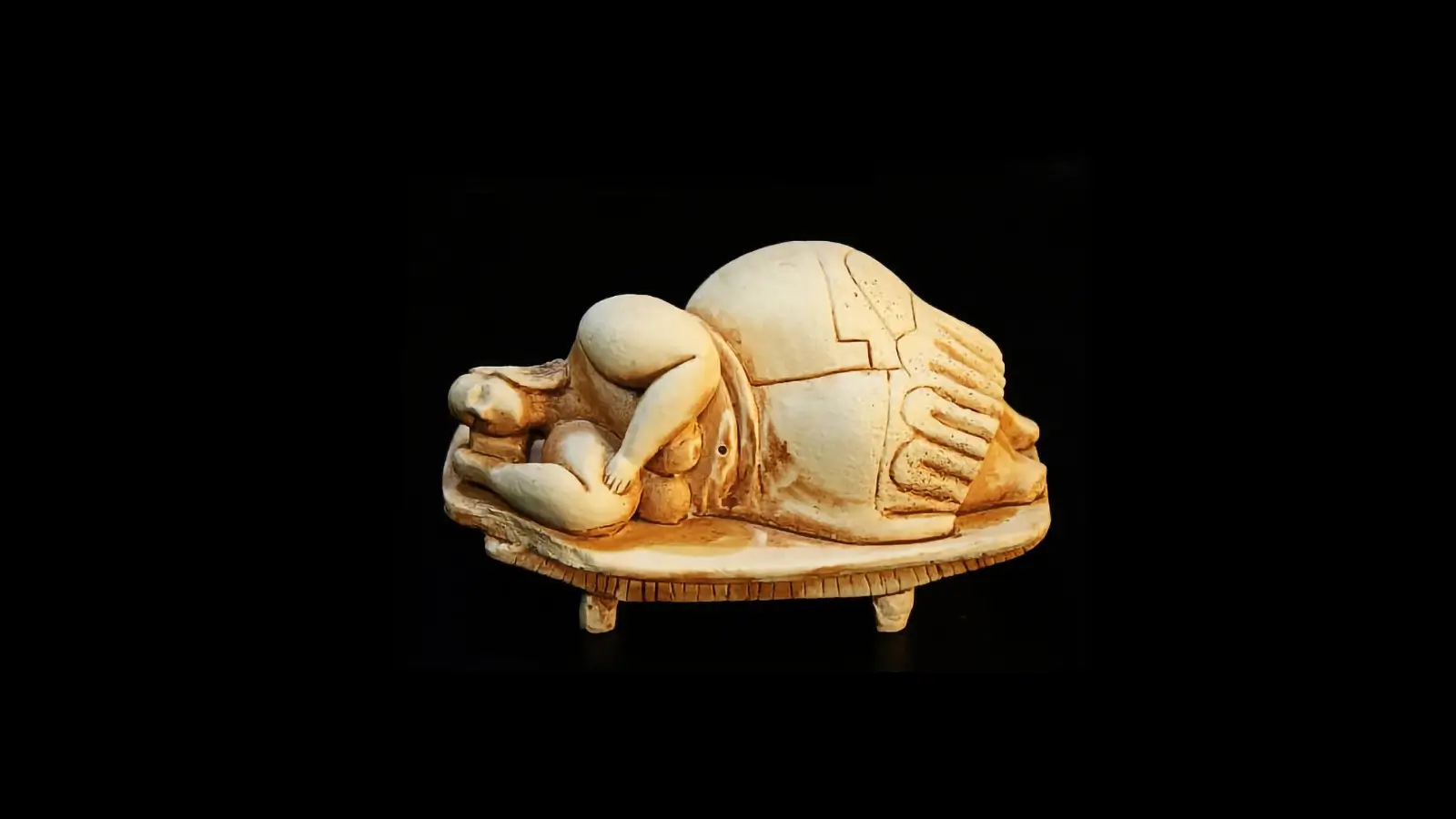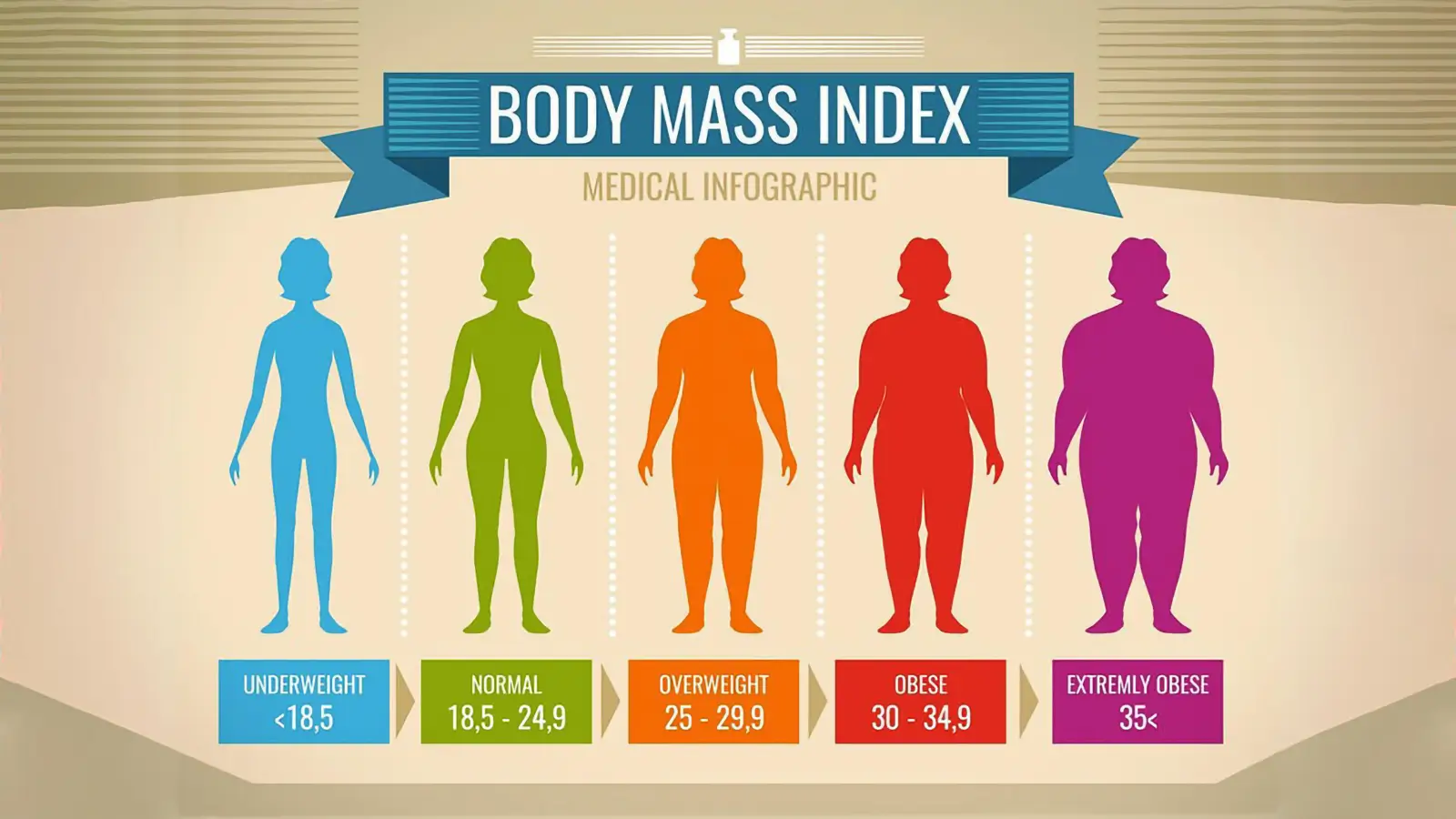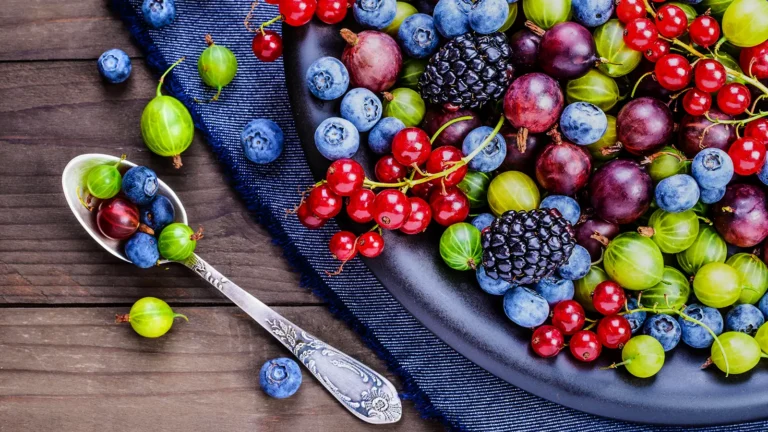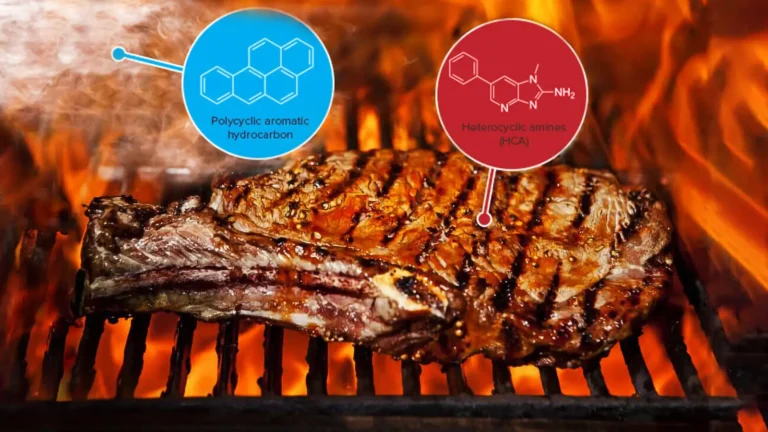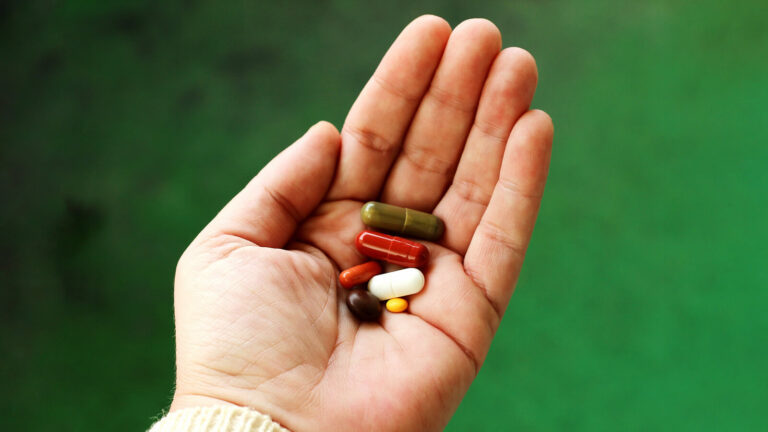Ejercicio: ¿Por qué lo necesitamos exactamente?
En la comunidad sanitaria, el ejercicio tiene un estatus casi mítico como una de las mejores cosas que se pueden hacer por uno mismo, a excepción de evitar fumar.
Milos Pokimica
Escrito por: Milos Pokimica
Revisado Médicamente Por: Dr. Xiùying Wáng, M.D.
Actualizado el 9 de junio de 2023Todos sabemos que el entrenamiento o el ejercicio de cualquier tipo es saludable para nosotros. A los médicos les gusta hablar mucho de prevención y una gran parte de la prevención se reduce a hacer ejercicio, controlar el peso y evitar los alimentos refinados. Es muy importante que tengamos actividad física en las escuelas. Tenemos diferentes tipos de deportes. Tenemos ligas profesionales de fútbol y baloncesto para ver en el tiempo libre, incluso los Juegos Olímpicos. Glorificamos a los atletas profesionales como modelos para nuestros hijos. Incluso nuestro perro se agita si no recibe su dosis diaria de paseo.
En el ámbito de la salud, hacer ejercicio en la comunidad tiene un estatus casi mítico como una de las mejores cosas que se pueden hacer por uno mismo, excepto evitar fumar. En realidad, si nos fijamos en los datos científicos, la dieta es la principal causa de muerte y la intervención sanitaria más importante. Sólo después de la dieta, hay otros factores de riesgo asociados a la inactividad física y a malos hábitos como el tabaquismo.
La creencia de que la inactividad física es el mayor problema de salud pública del siglo XXI no es del todo cierta.
La inactividad física apenas figura entre las diez principales causas de muerte en el mundo. La dieta ocupa el primer lugar y el tabaco el segundo. Sin embargo, esto no significa que el ejercicio no sea importante. Sólo significa que hay cambios más importantes en el estilo de vida que afectan a la calidad de vida de forma más grave.
La dieta es absolutamente el número uno. El problema que tenemos es que la comida es una sustancia adictiva y los hábitos dietéticos no se pueden cambiar tan fácilmente. La gente se negaría a cambiar su comportamiento. El ejercicio se considera el santo grial por esa razón. La gente es adicta a la comida y el ejercicio, a diferencia de las dietas, puede generar muchos beneficios, desde los deportes profesionales hasta los suplementos. No se puede ganar mucho dinero con las zanahorias.
Promover una dieta integral basada en plantas es todo menos una máquina de hacer dinero. Las grandes farmacéuticas son un gran negocio, al igual que la industria de los suplementos. El ejercicio es una forma rentable y probada de reducir la mortalidad. Rentable significa que no reduce los beneficios de las empresas existentes y, lo que es más importante, una forma que la gente puede aceptar. Esto no significa que no sea tan importante como medida preventiva. En la vida real, proporcionará un beneficio sustancial. Y sí, todos deberíamos hacer ejercicio.
¿Por qué?
Esa es la primera pregunta que debemos hacernos. Pues bien, no es porque el ejercicio en sí sea saludable. Es una experiencia estresante, dolorosa, llena de sudor y posibilidad de lesiones que aumenta el estrés oxidativo y conduce a la creación de daños radicales libres en el ADN. No hay ninguna especie animal en la naturaleza a la que le guste "hacer ejercicio". Cazar o buscar comida no tiene nada de romántico. Es una necesidad existencial obligada. Cuando hacemos ejercicio lo que esencialmente estamos haciendo es que estamos simulando un entorno en el que nuestros antepasados han evolucionado. Es una forma de dolor autoinfligido. Dolor que por sí solo no es saludable y creará daños en el ADN debido a la producción excesiva de radicales libres por el aumento del consumo de oxígeno.
Si los radicales libres dañan el ADN y el ejercicio provoca la creación de radicales libres, ¿cómo puede ser que la actividad física sea saludable?
Se debe a que nuestros antepasados homínidos vivían de la búsqueda de alimentos. Eso creó adaptaciones evolutivas en nuestra biología. La actividad física era un componente esencial de su supervivencia. Si no buscas comida, no la encuentras y mueres. Así de sencillo. La única razón por la que el ejercicio es saludable es porque en un millón de años de evolución nuestro cuerpo se adaptó a él. Nuestro cuerpo lo espera como parte normal de la vida.
Cuando no hacemos ejercicio estamos desequilibrados con nuestra fisiología, y cuando lo hacemos, le damos a nuestro cuerpo lo que espera. Cuando vamos al gimnasio o hacemos cualquier otro ejercicio como correr en la cinta, lo que estamos haciendo es que estamos simulando las condiciones del hábitat de nuestros antepasados homínidos.
Cuando buscamos investigaciones científicas sobre el ejercicio, ¿qué encontramos? ¿Importa el ejercicio o es sólo algo que nos ayuda a perder peso más rápidamente? Lo que encontramos es que los individuos con bajos niveles de actividad física tienen un mayor riesgo de padecer muchos tipos de enfermedades, como cardiopatías, cáncer, Alzheimer y también muerte prematura por cualquier causa. Mucho antes, la inactividad aumenta el dolor lumbar, empeora los síntomas de la artritis y provoca ansiedad. El ejercicio puede ayudar a reducir el riesgo de muerte prematura, hipertensión arterial, ictus, cardiopatías coronarias, perfil lipídico sanguíneo adverso, diabetes de tipo 2, síndrome metabólico, cáncer de colon, cáncer de mama, depresión, y puede aumentar la salud cognitiva y mental, la calidad del sueño, la función del sistema inmunitario y la longevidad.
Hay un par de beneficios principales de la actividad física. El primero y principal serán sus efectos sobre el sistema cardiovascular. Es probable que hagas algo de "cardio" en el gimnasio.
Cuando hacemos ejercicio, el corazón empieza a contraerse con fuerza y frecuencia. Eso aumentará el flujo sanguíneo a través de las arterias y permitirá que nuestros músculos utilicen más oxígeno. El aumento del flujo sanguíneo provocará cambios sutiles en el sistema nervioso autónomo, que controla la contracción y relajación de estos vasos. Esta adaptación conduce a una disminución de la presión arterial, una frecuencia cardiaca más variable, es decir, la capacidad del corazón de ralentizar o aumentar las contracciones cuando sea necesario, y una frecuencia cardiaca en reposo más baja en general, lo que significa una mayor eficacia del sistema cardiovascular con menos latidos para bombear la sangre a través del cuerpo. Todos estos aspectos influyen en la reducción de las enfermedades cardiovasculares.
El ejercicio también reduce la inflamación asociada al sistema cardiovascular. Las investigaciones realizadas han demostrado que el ejercicio reduce en un 30% los niveles de proteína C reactiva, un marcador de inflamación. El descenso del 30% es aproximadamente el mismo que el de la estatina (el fármaco para el colesterol). Refuerza el sistema inmunitario y previene el cáncer y otras enfermedades.
Uno de los principales beneficios será también un aumento de la sensibilidad a la insulina. Cuando alguien corre, las contracciones musculares aumentarán la producción de proteína quinasa activada por monofosfato de adenosina (AMPK). Se trata de una enzima que promueve la descomposición de las grasas que pueden interferir con los transportadores de glucosa de la célula. La AMPK puede ayudar a prevenir la diabetes de tipo 2.
Las investigaciones en ratas demuestran que el ejercicio físico potencia el BDNF (factor neurotrófico derivado del cerebro). El BDNF es un factor esencial en el aprendizaje y la memoria. El BDNF ayuda a las ratas a recordar cómo orientarse en laberintos, y cabe suponer una actividad similar en los seres humanos.
El ejercicio ayudará a mantener la masa ósea y reducirá el riesgo de osteoporosis. Los huesos se fortalecen cuando se ven obligados a adaptarse para soportar más peso del habitual.
El Departamento de Salud y Servicios Humanos (HHS) supervisa este tipo de investigación y publica periódicamente sus Directrices de Actividad Física para los Estadounidenses. Las recomendaciones son las siguientes:
"Los adultos de entre 18 y 64 años realizan ejercicio moderado (caminar) durante al menos dos horas y 30 minutos o intenso (correr, nadar o montar en bicicleta a 15 km/h o más) durante al menos una hora y 15 minutos semanales".
Es decir, unos 11 minutos de carrera al día en la cinta. Para las personas que no entienden cómo leer este tipo de comunicado, la palabra clave es por lo menos. Cuanto más, mejor. Recomiendan lo que creen que se puede conseguir. Cuando miramos sus gráficos de la correlación entre el ejercicio y la muerte prematura todo lo que podemos ver es sólo una caída lineal constante.
Si hacemos ejercicio 180 minutos a la semana, tendremos un 27% menos de riesgo pero si hacemos ejercicio 420 minutos a la semana tendremos un 38,5% menos de riesgo, y este tipo de correlación se encuentra en todos los estudios y revisiones sistemáticas y meta-análisis de estudios de cohortes. En un estudio (Mok y otros, 2019) revisaron 22 estudios que cumplían los criterios de inclusión. Un estudio que incluía a 977.925 individuos (334.738 hombres y 643.187 mujeres) y descubrió que 2,5h/semana (equivalente a 30min diarios durante 5 días a la semana) en comparación con ninguna actividad se correlacionaba con una disminución del riesgo de mortalidad de 19%, mientras que 7h/semana de actividad moderada en comparación con ninguna actividad reducía el riesgo de mortalidad en 24%.
La conclusión fue que:
"Ser físicamente activo reduce el riesgo de mortalidad por todas las causas".
Se comprobó que pasar de no realizar ninguna actividad a realizar una pequeña cantidad proporcionaba el beneficio más significativo.
Sin embargo, eso no significa que si somos activos no obtengamos beneficios adicionales. Incluso a altos niveles de actividad, la actividad adicional sigue aportando beneficios. Cuanto más ejercicio y más prolongado, más beneficios.
Referencias:
- Mok, A., Khaw, K., Luben, R., Wareham, N. J., & Brage, S. (2019). Trayectorias de actividad física y mortalidad: estudio de cohortes basado en la población. BMJ, l2323. https://doi.org/10.1136/bmj.l2323
- Arem, H., Moore, S. C., Patel, A., Hartge, P., Berrington de González, A., Visvanathan, K., Campbell, P. T., Freedman, M., Weiderpass, E., Adami, H. O., Linet, M. S., Lee, I. M., & Matthews, C. E. (2015). Leisure time physical activity and mortality: a detailed pooled analysis of the dose-response relationship. JAMA medicina interna, 175(6), 959-967. https://doi.org/10.1001/jamainternmed.2015.0533
- Woodcock, J., Franco, O. H., Orsini, N., & Roberts, I. (2011). Non-vigorous physical activity and all-cause mortality: Revisión sistemática y meta-análisis de estudios de cohortes. Revista Internacional de Epidemiología, 40(1), 121-138. https://doi.org/10.1093/ije/dyq104
¿Tienes alguna duda acerca de la nutrición y la salud?
Me encantaría saber de usted y responderlas en mi próxima publicación. Agradezco sus aportes y opiniones y espero tener noticias suyas pronto. También te invito a síguenos en Facebook, Instagram y Pinterest para más contenidos sobre dieta, nutrición y salud. Puedes dejar un comentario allí y conectar con otros entusiastas de la salud, compartir tus consejos y experiencias, y recibir apoyo y ánimo de nuestro equipo y nuestra comunidad.
Espero que este post le haya resultado informativo y ameno y que esté preparado para aplicar los conocimientos adquiridos. Si le ha resultado útil, por favor compártelo con tus amigos y familiares que también podrían beneficiarse de ella. Nunca se sabe quién puede necesitar orientación y apoyo en su camino hacia la salud.
– También Te Puede Interesar –

Aprenda Sobre Nutricion
Milos Pokimica es doctor en medicina natural, nutricionista clínico, escritor sobre salud médica y nutrición y asesor en ciencias de la nutrición. Autor de la serie de libros Go Vegan? Revisión de la Ciencia, también dirige el sitio web sobre salud natural GoVeganWay.com.
Descargo De Responsabilidad Médica
GoVeganWay.com le ofrece reseñas de las últimas investigaciones relacionadas con la nutrición y la salud. La información proporcionada representa la opinión personal del autor y no pretende ni implica sustituir el asesoramiento, diagnóstico o tratamiento médico profesional. La información proporcionada tiene fines informativos únicamente y no pretende sustituir la consulta, el diagnóstico y/o el tratamiento médico de un médico o proveedor de atención médica calificado.NUNCA ignore el CONSEJO MÉDICO PROFESIONAL O RETRASAR la BÚSQUEDA de TRATAMIENTO MÉDICO a CAUSA DE ALGO QUE HAYA LEÍDO EN O accesibles a TRAVÉS de GoVeganWay.com
NUNCA APLICAR CUALQUIER cambio de ESTILO de vida O CAMBIOS EN su totalidad COMO UNA CONSECUENCIA DE ALGO QUE HA LEÍDO EN GoVeganWay.com ANTES de CONSULTAR con LICENCIA PROFESIONAL MÉDICO.
En el caso de una emergencia médica, llame a un médico o al 911 inmediatamente. GoVeganWay.com no se recomienda ni aprueba ninguna de los grupos, las organizaciones, las pruebas, los médicos, productos, procedimientos, opiniones u otra información que pueda ser mencionado en el interior.
Selecciones del editor –
Milos Pokimica es escritor especializado en salud y nutrición y asesor en ciencias nutricionales. Autor de la serie de libros Go Vegan? Revisión de la Ciencia, también dirige el sitio web sobre salud natural GoVeganWay.com.
Últimos artículos -
Top Noticias De Salud — ScienceDaily
- The overlooked nutrition risk of Ozempic and Wegovyen febrero 4, 2026
Popular weight-loss drugs like Ozempic and Wegovy can dramatically curb appetite, but experts warn many users are flying blind when it comes to nutrition. New research suggests people taking these medications may not be getting enough guidance on protein, vitamins, and overall diet quality, increasing the risk of muscle loss and nutrient deficiencies.
- A 25-year study found an unexpected link between cheese and dementiaen febrero 4, 2026
A massive Swedish study tracking nearly 28,000 people for 25 years found an unexpected link between full-fat dairy and brain health. Among adults without a genetic risk for Alzheimer’s, eating more full-fat cheese was associated with a noticeably lower risk of developing the disease, while higher cream intake was tied to reduced dementia risk overall. The findings challenge decades of low-fat dietary advice but come with important caveats.
- MIT’s new brain tool could finally explain consciousnessen febrero 4, 2026
Scientists still don’t know how the brain turns physical activity into thoughts, feelings, and awareness—but a powerful new tool may help crack the mystery. Researchers at MIT are exploring transcranial focused ultrasound, a noninvasive technology that can precisely stimulate deep regions of the brain that were previously off-limits. In a new “roadmap” paper, they explain how this method could finally let scientists test cause-and-effect in consciousness research, not just observe […]
- Why heart disease risk in type 2 diabetes looks different for men and womenen febrero 4, 2026
Scientists are digging into why heart disease risk in type 2 diabetes differs between men and women—and sex hormones may be part of the story. In a large Johns Hopkins study, men with higher testosterone had lower heart disease risk, while rising estradiol levels were linked to higher risk. These hormone effects were not seen in women. The results point toward more personalized approaches to heart disease prevention in diabetes.
- Sound machines might be making your sleep worseen febrero 4, 2026
Sound machines may not be the sleep saviors many believe. Researchers found that pink noise significantly reduced REM sleep, while simple earplugs did a better job protecting deep, restorative sleep from traffic noise. When pink noise was combined with outside noise, sleep quality dropped even further. The results suggest that popular “sleep sounds” could be doing more harm than good—particularly for kids.
- This unexpected plant discovery could change how drugs are madeen febrero 3, 2026
Plants make chemical weapons to protect themselves, and many of these compounds have become vital to human medicine. Researchers found that one powerful plant chemical is produced using a gene that looks surprisingly bacterial. This suggests plants reuse microbial tools to invent new chemistry. The insight could help scientists discover new drugs and produce them more sustainably.
- A hidden cellular process may drive aging and diseaseen febrero 3, 2026
As we age, our cells don’t just wear down—they reorganize. Researchers found that cells actively remodel a key structure called the endoplasmic reticulum, reducing protein-producing regions while preserving fat-related ones. This process, driven by ER-phagy, is tied to lifespan and healthy aging. Because these changes happen early, they could help trigger later disease—or offer a chance to stop it.
PubMed, #Dieta vegana –
- Diet type and the oral microbiomeen febrero 2, 2026
CONCLUSION: The diet-oral microbiome-systemic inflammation axis is bidirectional and clinically relevant. Understanding both direct ecological regulation and indirect metabolic effects is essential to support precision nutrition strategies aimed at maintaining oral microbial balance and systemic inflammatory risk mitigation.
- Consensus document on healthy lifestylesen enero 22, 2026
Proteins are a group of macronutrients that are vital to our lives, as they perform various functions, including structural, defensive and catalytic. An intake of 1.0-1.2 g/kg/body weight per day would be sufficient to meet our needs. Carbohydrate requirements constitute 50 % of the total caloric value and should be obtained mainly in the form of complex carbohydrates. In addition, a daily intake of both soluble and insoluble fiber is necessary. Regular consumption of extra virgin olive oil […]
- Vitamin B12 and D status in long-term vegetarians: Impact of diet duration and subtypes in Beijing, Chinaen enero 21, 2026
CONCLUSIONS: This study reveals a dual challenge among Beijing long-term vegetarians: vitamin B12 deficiency was strongly associated with the degree of exclusion of animal products from the diet (veganism), while vitamin D deficiency was highly prevalent and worsened with longer diet duration. The near-universal vitamin D deficiency observed in this study suggests that, in the Beijing context, the risk may extend beyond dietary choice, potentially reflecting regional environmental factors;…
- Nutritional evaluation of duty meals provided to riot police forces in Germanyen enero 13, 2026
Background: The primary role of the German riot police is maintaining internal security. Due to challenging working conditions, riot police forces face an elevated risk of various diseases. During duty, forces are provided with meals. A balanced diet can reduce the risk of some of these diseases and contribute to health-promoting working conditions. Aim: First evaluation of the nutritional quality of duty meals in Germany based on German Nutrition Society recommendations (DGE). Methods: In…
- Iodineen enero 1, 2006
Iodine is an essential trace nutrient for all infants that is a normal component of breastmilk. Infant requirements are estimated to be 15 mcg/kg daily in full-term infants and 30 mcg/kg daily in preterm infants.[1] Breastmilk iodine concentration correlates well with maternal urinary iodine concentration and may be a useful index of iodine sufficiency in infants under 2 years of age, but there is no clear agreement on a value that indicates iodine sufficiency, and may not correlate with […]
Publicaciones aleatorias –
Publicaciones destacadas -
La última versión desde PubMed, #Dieta basada en plantas –
- From paddy soil to dining table: biological biofortification of rice with zincpor Lei Huang en febrero 4, 2026
One-third of paddy soils are globally deficient in zinc (Zn) and 40% of Zn loss in the procession from brown rice to polished rice, which results in the global issue of hidden hunger, e.g., the micronutrient deficiencies in the rice-based population of developing countries. In the recent decades, biofortification of cereal food crops with Zn has emerged as a promising solution. Herein, we comprehensively reviewed the entire process of Zn in paddy soil to human diet, including the regulatory…
- Molecular Characterization of Tobacco Necrosis Virus A Variants Identified in Sugarbeet Rootspor Alyssa Flobinus en febrero 3, 2026
Sugarbeet provides an important source of sucrose; a stable, environmentally safe, and low-cost staple in the human diet. Viral diseases arising in sugarbeet ultimately impact sugar content, which translates to financial losses for growers. To manage diseases and prevent such losses from occurring, it is essential to characterize viruses responsible for disease. Recently, our laboratory identified a tobacco necrosis virus A variant named Beta vulgaris alphanecrovirus 1 (BvANV-1) in sugarbeet…
- Nutrition in early life interacts with genetic risk to influence preadult behaviour in the Raine Studypor Lars Meinertz Byg en febrero 3, 2026
CONCLUSIONS: Nutrition in early life and psychiatric genetic risk may interact to determine lasting child behaviour. Contrary to our hypothesis, we find dietary benefits in individuals with lower ADHD PGS, necessitating replication. We also highlight the possibility of including genetics in early nutrition intervention trials for causal inference.
- Effect of the gut microbiota on insect reproduction: mechanisms and biotechnological prospectspor Dilawar Abbas en febrero 2, 2026
The insect gut microbiota functions as a multifunctional symbiotic system that plays a central role in host reproduction. Through the production of bioactive metabolites, gut microbes interact with host hormonal pathways, immune signaling, and molecular regulatory networks, thereby shaping reproductive physiology and fitness. This review summarizes recent advances in understanding how gut microbiota regulate insect reproduction. Accumulating evidence demonstrates that microbial metabolites…
- Rationale and design of a parallel randomised trial of a plant-based intensive lifestyle intervention for diabetes remission: The REmission of diabetes using a PlAnt-based weight loss InteRvention…por Brighid McKay en febrero 2, 2026
CONCLUSIONS: This trial will provide high-quality clinical evidence on the use of plant-based ILIs to address the epidemics of obesity and diabetes to inform public health policies and programs in Canada and beyond.
- Diet type and the oral microbiomepor Daniel Betancur en febrero 2, 2026
CONCLUSION: The diet-oral microbiome-systemic inflammation axis is bidirectional and clinically relevant. Understanding both direct ecological regulation and indirect metabolic effects is essential to support precision nutrition strategies aimed at maintaining oral microbial balance and systemic inflammatory risk mitigation.
